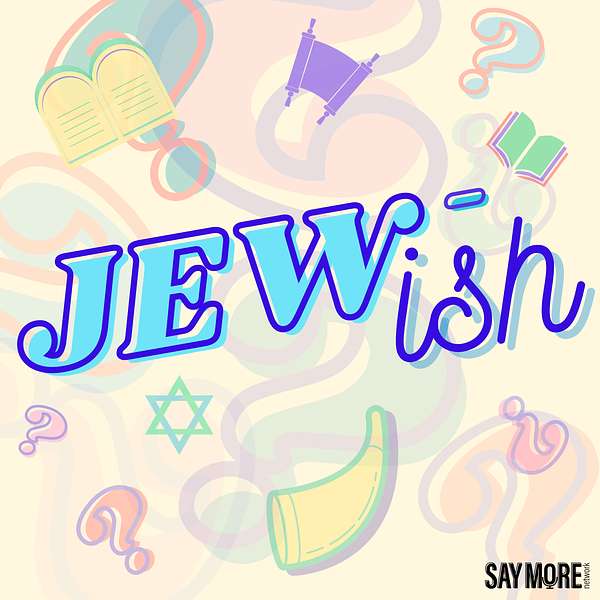
Jew-ish
What is being "Jewish"? What are Jews? What do Jews believe? What do Jews do? What's happening in those mysterious synagogues with all that weird language (it's Hebrew)?
Jew curious?
The thing about being Jewish is, you can't tell us apart by looking (well, not always), we often look the same, dress the same, work and play and eat right alongside our non-Jewish counterparts, and yet, as a teeny tiny minority--only 0.2% of the global population, and 2-3% of the U.S. population--plenty of people have probably never met a Jewish person, or if they did, they didn't even know it.
For as much as we share (and it's probably way more than you think), somehow, moving through the world as a Jew really is different. Everything looks different through a Jewish lens, even for those who aren't particularly religious, the ones who describe themselves as "Jew-ish."
But honestly, none of this is really that mysterious. And, if you're curious or confused, you can always just ask the internet--or, now you can also come here and check in with your new Jewish friend.
So, if you have questions about being Jewish, we're here to introduce, explain, ask alongside, and generally demystify Judaism for Members of the Tribe (Jews) and goyim (non-Jews) alike, exploring and showcasing the infinite ways there are to be Jewish.
Jew-ish
Happy Jew Year! What does Rosh Hashanah and Yom Kippur mean, and what to do.
Rosh Hashanah is the Jewish New Year, followed by Yom Kippur, the Day of Atonement, and together with the 10 days of deep contemplation between them, they are known as the Days of Awe, or the High Holy Days–but apparently only in the U.S. Also–spoiler alert!--it’s not the actual “new year” on the Jewish calendar. Or at least not since ancient times…but we’ll get into all that. This episode is here to help, you, me, whoever, understand how to “do” Rosh Hashanah and Yom Kippur, or just a bit more about them. Listen in to learn what to say and not say to your Jewish friends, a short list of sins you should be thinking about, and some of the ways our oddball family approaches the major themes and responsibilities of the season, including repentance, reflection, forgiveness, celebration (or not).
GLOSSARY
Chag Sameach: Translates to “Happy Holiday”, the generic expression to share well-wishes on any holiday.
Talmudic period: Referring to the time between approximately 64-70 and 500-640 CE, beginning with the first Jewish revolt against Roman rule and including the destruction of Jerusalem and the Second Temple that resulted in the exile of the Jews, and the eventual rise of great rabbis such as Akiva and Hillel, whose writings, along with other scholars of this period, were eventually compiled into the Mishnah and Gemara, which, together, comprise the Jewish book of law known as the Talmud. During this period, Hillel also created the lunar Jewish calendar commonly used today.
Yom Hazikaron: Translates to “Day of Remembrance” and is observed in Israel to remember fallen soldiers, in the same way as Memorial Day in the U.S. is.
Yom ha'atzmaut: Israeli Independence Day
Madrichim: Translated as “teachers,” “leaders,” or “guides,” madrichim are generally teenagers trained in Jewish leadership programs.
Sitting Shiva: The practice of mourning death for seven days including customs such as sitting low to the ground and covering mirrors, during which the immediate family of the deceased receives guests to care for and bring them food so they can sit and be present in their grief.
Machzor: A Jewish prayer book arranged in specific liturgical order for the High Holidays.
Shulchan Aruch: The Jewish legal code compiled in the 1500s by Sephardic rabbi Joseph Caro.
Mitzvot: Often translated as “good deeds,” the word actually means “commandments.”
Shofar: The horn of a kosher animal, often a ram, ceremonially blown on Rosh Hashanah and Yom Kippur.
More:
Check out the Stoic Coffee Break on your favorite podcast app and listen for Erick Cloward's episode on Jew-ish!
Trying to get those last few dollars out the door for your 2025 charitable donations? Or maybe you just have a little extra this season, when so many don't have enough? There but for the grace of God go all of us, amirite? Well, if this is you, please consider giving to the Hebrew Free Loan Association of Greater Washington so they can continue making interest-free loans to community members in a bind--like myself. And thank you!
***This is an AI-generated transcript and has not been copy-edited. The robots are good, but they're not perfect. Please be gracious!***
[00:00:00] Zev: That's a safe promise to make. I promise to try.
[00:00:02] Hannah: Yeah. We can't really promise to succeed every time, can we.
[00:00:07] Pam: As long as you're really going to try, you may not make it, or you may not make it this year, but you can make a beginning.
[00:00:15] Zev: I always, uh, do tell my mother never to make promises they can't keep. So best just not to make any promises at all.
[00:00:23] Hannah: Well, promise you'll try,
[00:00:24] Zev: promise you'll see what you can do.
[00:00:27] Hannah: Promise, you'll let us know how it goes. Hey, y'all, this episode's gonna be a little bit different, uh, even though Rosh Hashanah and Yom Kippur come every year, usually around my birthday or on my birthday, I did not have
[00:00:42] Hannah: an episode planned. So I decided to throw one together and coerced my mother and brother, our beloved Jewish Educator All Stars, to appear on an impromptu episode with me, but I'm traveling for work and for my birthday.
[00:00:56] Hannah: So that means I coerced them into a Zoom call [00:01:00] and thank you so much for doing that guys. But what that means for you is that the audio might be a little bit off and I'm also recording this on my cell phone. So sorry about that. Bear with us, still gonna be great, we're all gonna learn a lot, and uh, you know, Chag Sameach!
[00:01:15] Hannah: Hi family!
[00:01:18] Pam: Hi!
[00:01:20] Hannah: Thank you for joining me, um, So this was kind of an impromptu idea, but it just occurred to me that like, it would be really strange to not acknowledge Rosh Hashanah and Yom Kippur since it's literally in the middle of them right now. So just wanted to talk a little bit about, um, you know, Rosh Hashanah or as I prefer to call it Rosh Hashanah, which was on my birthday this year, by the way, so I'm super claiming it.
[00:01:47] Hannah: Um, and Yom Kippur, which I affectionately call the Yom. And Zeb and I have talked about that being our favorite holiday, which I think is hilarious for a lot of reasons, but mostly because it's like a very dour and [00:02:00] serious holiday. Um, but I wanted to kind of start with like, I don't know, maybe a little bit of a myth bust.
[00:02:08] Hannah: I wanted to start with asking, uh, Basic questions for those friends of ours who may not actually know a lot about this, Jewish or not. We call Rosh Hashanah the Jewish new year, but it's not the new year. We have a calendar new year. The way it's been explained to me is it's the celebration of the creation.
[00:02:27] Hannah: of the first year ever. So it's not the new year like the calendar new year. It's actually celebrating the birthday of every year. Do I have
[00:02:38] Pam: that right? I mean, this is You do. Although it used to be, I mean, 2000 years ago, it was in fact the new year. But calendar changes over centuries have made what you said exactly true.
[00:02:52] Pam: What do you mean by calendar changes? Well, I mean, um, you know, the rabbis under the [00:03:00] Romans switch things in certain ways and then Talmudic times, things changed to certain, in certain ways. And so Rosh Hashanah is now, it always was the celebration of creation, but now it's only that. It's not the beginning of the calendar.
[00:03:18] Pam: Right. Okay. Zeb, thoughts?
[00:03:24] Zev: Um, I also only recently learned of it as a day of remembrance of creation.
[00:03:30] Mm hmm.
[00:03:32] Zev: Because I asked someone, why do you say that Yom Hazikaron, you say in the prayers for Rosh Hashanah, like this day of remembrance, which is normally like a somber holiday, not a celebration of, but it's a celebration, remembering the creation.
[00:03:44] Zev: I didn't, I didn't hear anything about it not being the start of the year. I always thought it made much more sense, the Jewish calendar year, starting along with the Jewish calendar. the school year and everything else we experience. It's the start of the year as opposed to the Christian [00:04:00] year, which starts.
[00:04:01] Zev: in the middle of winter.
[00:04:03] Hannah: The Roman calendar, I believe they prefer to be called. Right, I'm
[00:04:07] sure they
[00:04:07] Hannah: do. You know, but that's so interesting. So mom, you're saying that this calendar rearrangement happened under ostensibly the same regime that actually gave us the calendar we use now? We meaning Western society generally?
[00:04:22] Pam: Oh no, it's, it's the Jewish Talmudic sequence during the Middle Ages.
[00:04:29] Hannah: I never really. Like, we never really acknowledged, like, the role of the build up to this, and I always loved the name The Days of Awe, but I always thought that was for the days in between Rosh Hashanah and Yom Kippur. I didn't realize it included the two holidays.
[00:04:44] Hannah: I only thought of the Days of Awe as being the days where it's like, okay, so on Rosh Hashanah, it's like, hooray, happy new year, except for not, because then you spend ten days being like, oh shit, what did I do this year? I need to be ready to apologize. And also to accept [00:05:00] apologies, which, you know, is very hard work.
[00:05:03] Hannah: Accepting apologies is actually incredibly hard work. But so I guess one of the questions is like on Rosh Hashanah, we eat our apples and honey, we wish each other a happy new year, but it's not a calendar new year. We're really what? Wishing each other like a refreshment of spirit? Like
[00:05:19] Pam: what are we doing?
[00:05:19] Pam: It's like, okay, here we go. This is our cleansing time starting. We're going to try and start with a clean slate. Let's think of all the things we did that we shouldn't have done. Let's think of all the things we didn't do. Didn't do that. We should have done. And then the one I always left out that I was just mentioning, and let's talk to the people who've heard our feelings or wounded us in some way.
[00:05:43] Hannah: Yeah. That's always tricky. One of my favorite things that's listed in the Yom Kippur service is when they give you, you know, we are so lucky because we have a whole list. An actual list of sins that we, that we don't have to come up with it on our own and be super honest. We're supposed to be. But here's a starting point for you.[00:06:00]
[00:06:00] Hannah: And in that list is, um, which I always loved in the book that we used growing up in Gates of Prayer was, at least this is how they translated it, was, you know, Um, confessing the love, confessing to love, or claiming love we did not feel and not confessing love that we did. And that was always one of my favorite things to be listed as like a quote unquote sin.
[00:06:24] Hannah: And like for me at least certainly as I've gotten older, I've really, I've really discovered and meditated on how, what are the things that make me feel good and that make me feel crappy and that make me feel better. And like when, even when I'm in my darkest places, the only thing that really makes me feel better is expressing love to other people.
[00:06:46] Hannah: And one of the things that has always made me feel crappy, like in relationships or friendships or anything like that, is feeling like I couldn't freely express my feelings to other people. And I don't know if [00:07:00] like leaning into being able to do that maybe comes partially from that notion of like, yes, not expressing love that you feel is, is actually considered a betrayal of oneself.
[00:07:10] Hannah: And I think that goes also to like the Jewish concept of sin. You're not really, it's not like you've committed this sin and you'll be damned to hell because we don't have that. But it is like you have betrayed your true self. You are betraying the sort of inner divinity that you carry, the godliness or whatever that you are capable of embodying because we're all made in God's image.
[00:07:33] Hannah: And like, therefore, you know, if you're being dishonest in this very, very profound way, you, it's, it's something that you need to fix. Essentially. I don't know that there's a question there.
[00:07:46] Pam: No, but I, I see that as connected to acknowledging and confronting all of our deep feelings. I mean, it's not that different from what I was saying about, Oh, you hurt my feelings.
[00:07:59] Pam: You [00:08:00] know, it's also, Oh God, I love you so much. I can't stand it. You know, I mean, anything that's felt really deeply has to be confronted during these days. I think of it as all one thing. Oh, that's interesting.
[00:08:16] Hannah: What about you, Zeb? Why is, uh, So, the Roche and the Yom, as we like to call it, we being me at least, I assume I'm not the only one.
[00:08:25] Hannah: I hope I'm not the only one. Not me. The Roche and the Yom. For now. Okay, well, here we go. So. God, it's
[00:08:33] Zev: interesting. I mean, I could relate to what y'all said about the, the sin of omission, whether it be a positive or
[00:08:42] Hannah: negative devotion. Sins of omission. That's a good way to think about it. Yeah.
[00:08:45] Zev: Um, oh, I do think that that's what I like.
[00:08:48] Zev: I mean, I always do conceptualize it as the. As a starting of a new year. And I like the dichotomy or the context that exists inherent in the, [00:09:00] I always thought it was weird that we start the new year first and then Yom Kippur is after. It would seem that it would make more sense if it was the other way.
[00:09:07] Zev: If you would go through the repentance and leave things behind, put that behind you. And then you get to start
[00:09:12] Hannah: fresh.
[00:09:13] Zev: Right? The same as in Israel. You do like Yom HaZikaron and then Yom HaTzmot right after. But I actually like that the two come together and there's this overlap and there is something about it that's One, Judaism does believe in new beginnings.
[00:09:26] Zev: You have the chance to be a new person. You have the chance to go forward and whatever, whatever the goyim also do on their day, right? Whatever the, whatever other people do on their New Year's, you set new goals. You say who you want to be this year. You lie to yourself a little bit, you're not going to start banking.
[00:09:42] Zev: It's optimism, Zev. It's optimism. It's not a lie. Yeah, yeah, exactly.
[00:09:44] Hannah: If
[00:09:45] Zev: you get one out of the four resolutions, I think that's pretty good. But, in Judaism, you can't go forward, you can't do those things, you can start thinking about those, but you can't do it. Totally disconnected from who you were in the past and what you were in the past.[00:10:00]
[00:10:00] Zev: In order to move forward and start a new beginning, you have to reflect honestly about who you were in the year before. Like, not only to say what you want to leave behind in order to be new, but to also understand how to move forward. I like that. I like that overlap of the days of awe.
[00:10:16] Hannah: It's also just
[00:10:16] Zev: fun to say, Days of Awe.
[00:10:18] Zev: I know.
[00:10:18] Hannah: It's very scary. It makes me feel, I'm like, Oh, you didn't know about the Days of Awe? And like my non Jewish friends are like, Whoa. And I'm like, I know, right?
[00:10:28] Zev: Yeah. When I moved to Israel, a few people would always talk about like, this period is the period of doing cheshbon nefesh, which is, uh, What does that mean?
[00:10:36] Pam: Yes.
[00:10:36] Zev: Literally, directly, it translates, cheshbon is like accounting. And Nefesh is your soul, it's like an accounting of your soul. No big deal. Right. Or spirit. Or spirit. It took me a long time to find a translation that I liked but eventually I landed on it's a reckoning.
[00:10:52] Hannah: Yes. That's even
[00:10:53] Pam: scarier, Zab. What the hell?
[00:10:56] Pam: No, but I don't like your saying [00:11:00] lie to yourself because you're not, it's not resolutions the way you do on January 1st. It's like Oh, I gotta work on that. No, I mean, you should approach it as, Oh God, I did that again. I had better work on that. So if you call that a resolution, I don't see it as lying to yourself.
[00:11:22] Pam: If you're really going to try. That's all you're promising. Sometimes
[00:11:26] Hannah: that's a lie.
[00:11:28] Yeah, yeah.
[00:11:29] Pam: I contend that
[00:11:30] Hannah: saying you're going to
[00:11:31] Pam: try is sometimes a lie.
[00:11:32] Right, there's some gray area in there.
[00:11:35] Pam: Okay, I leave that to you. Maybe I'm so old that I just don't, don't do that anymore.
[00:11:41] Zev: Well, maybe that's a, that's a safe promise to make.
[00:11:43] Zev: I promise to try.
[00:11:44] Hannah: Yeah, we can't really promise to succeed every time, Kim. As
[00:11:50] Pam: long as you're really gonna try, that's not a lie. That's my point. You may not make it, or you may not make it this year, but you can make a [00:12:00] beginning. It's
[00:12:02] Zev: interesting, I always, uh, do tell my madrachim never to make promises they can't keep, so best just not to make any promises at all.
[00:12:10] Hannah: Well, yes. Promise you'll
[00:12:11] Zev: try, promise you'll see what you
[00:12:13] Hannah: can do. Promise you'll try, promise you'll see what you can do. Promise you'll let us know how it goes.
[00:12:24] Hannah: I do like the element, too, of, of just like, like what you said, Zeb. So just to lay it out, the way we conceptualize this stuff, Rosh Hashanah is like quote unquote a new beginning. Right? It's an opportunity to sort of recreate or shall we say like maybe reenact the fresh creation of one's self or one's soul, I guess you could say.
[00:12:44] Hannah: And then we have these 10 days that we could, you know, that we're supposed to spend like literally logistically, literally like counting up all the terrible things we did to people and or experienced and asking for or offering forgiveness. But most [00:13:00] importantly, considering how we could and. will restructure our approach and our behavior to end that pain causing thing.
[00:13:13] Hannah: So me, whether that's, if it's my behavior that has hurt other people, then I need to do the work to understand what are my responsibilities to do differently. So as not to repeat. That behavior, but perhaps most importantly the outcomes of the behavior, the injuries, let's not, you know, what can I do to mitigate the types of injury that I'm causing others and myself and what can I do to mitigate the harm others are able to to cause me?
[00:13:44] Hannah: In my own feelings, right, like I cannot control your behavior, but I can control how I feel about it to some degree. Yes. Um, and that's my work, right, like my feelings are my responsibility in a lot of ways. And if that means, you know, forgiving someone but [00:14:00] removing them from your life because they cannot or will not change their behavior or who they That's okay.
[00:14:05] Hannah: But if you don't forgive them, you are still going to be carrying all of that forever and ever and ever. So I appreciate that part of it. Um, and 10 days doesn't seem like enough time to get all that done. But then theoretically.
[00:14:19] Zev: too much.
[00:14:20] Hannah: That's true. We don't want to ruminate. God forbid. It would be so unlike us as Jews to just like ruminate on something on the internet.
[00:14:27] Hannah: Uh, but I like how you say that Zeb, it kind of reminds me of the tradition of sitting Shiva right? Where it's like go in, go all in, be in the morning and then you have to stop and you have to move on and you have to come back into real life and you have to start implementing these things. So then it's Yom Kippur where it's like okay.
[00:14:43] Hannah: We're holding you accountable. You're going to make your plan here. You're going to make, you've made your plan. Go forth and do it correctly. So I like that. Um, and it's funny to even say, for example, that we quote unquote celebrate Rosh Hashanah or Yom Kippur. I think we do [00:15:00] celebrate Rosh Hashanah, but we observe Yom Kippur.
[00:15:02] Pam: Yes. Does that make sense? I also think you left out two, two important things here. Um, Okay. The first one is stuff you didn't do that you should have done.
[00:15:16] You
[00:15:16] Pam: know, it's not just, oh gosh, I shouldn't have said that to so and so or I shouldn't have done that. It's, ooh, I really should have filled in the blank.
[00:15:25] Pam: I could
[00:15:25] Hannah: have been a better friend by calling more. I could have been a more reliable co worker, you know, that kind of stuff. Yeah, yeah,
[00:15:33] Pam: yeah,
[00:15:33] Hannah: yeah.
[00:15:33] Pam: And then the other part I, I was waiting to hear was when you were talking about having bad feelings. Um, if you don't tell people, I mean, that's the one I was struggling with this year.
[00:15:47] Pam: Um, you don't give them the chance to apologize or to know, maybe they don't even know they really hurt your feelings. You've got to communicate. You've got to communicate your [00:16:00] deepest feelings. That's what we were talking about before.
[00:16:02] Hannah: That's a really good point, and that actually came up in a conversation I had with, um, a guy who does one of my all time favorite podcasts, which is called, uh, The Stoic Coffee Break.
[00:16:12] Hannah: Big recommend. Big crossover between Stoicism and a lot of Jewish principles, BT dubs, or at least the way we practice it. Um, and one of the things that we talked about was being a people pleaser, and how being a people pleaser in the context that you are not, Being honest about your feelings denies others the opportunity to actually make you happy because they don't actually know how you feel about what they're doing or not doing.
[00:16:35] Hannah: So I'm trying to, it's inherently manipulative, right? It's inherently manipulative to try and quote unquote control someone else's feelings, even if in your head you're doing that to try to make them happy. You're trying to control someone else's reactions, and that's manipulative on, on that most basic level.
[00:16:54] Hannah: But you're also denying, like you said, you're denying them the opportunity to be a source of joy for you, [00:17:00] as well as denying yourself the opportunity to experience actual joy, because you're not. Surfacing those real needs. And so I think that that's a really healthy and useful thing to think about too.
[00:17:11] Hannah: And especially in this society, we're not really allowed to ask for things that are purely, in our heads at least, purely, quote unquote, purely for us. It's so selfish and how dare you and we're supposed to be self effacing and give, give, give all the time. But I don't think that's a very Jewish value either.
[00:17:26] Pam: No, and that's why I, I mean, on the one hand, because we grow up in this society, I, I was so embarrassed. It's like, how am I going to say all this stuff? And I, I literally felt so much better because those bad feelings just stew in your ears, you know, if you don't communicate.
[00:17:47] Zev: Yeah, I was thinking about when you, what you were saying earlier as well about the, I don't remember exactly how you put it, but something you said made me think that it's unique and important.
[00:17:59] Zev: I think about [00:18:00] Judaism as well, that this whole act of, uh, of accounting, of figuring out who you've been and who you want to be going into the new year. It's an important principle of it that it can't happen only between you and yourself, that it happens, has to happen between you and other people. I think that's also important.
[00:18:16] Zev: It's not just about last year, I didn't stick to my diet, or I wish I had exercised more, I wish I had done this more, or I did this thing for myself, I'm going to be different in this way. It's, it has to be rooted in your effect on the world outside of yourself, your effect on other people and their effect on you.
[00:18:33] Zev: Like, like you said, um, it's interesting. I never thought about like, this conversation is making me think of like how much, uh, the days of our, uh, a period of honesty, a period,
[00:18:44] Hannah: sanctifying
[00:18:46] Zev: honesty,
[00:18:47] Hannah: deep, hell yeah, I sanctify honesty. That's my, honesty is my religion for sure.
[00:18:55] Zev: But I think also I was thinking of the, there's the interpersonal level that these things have to be outside of yourself, what [00:19:00] you want to reflect on and how you want to think about your influence.
[00:19:03] Zev: Has to be outside of yourself, I think is a healthy edict. Um, and it made me think of also there's some communities that I've experienced Yom Kippur services where they focus you on a larger societal level as well, that you repent not only for your personal sins, but also for our collective sins, for the sins of indifference towards the needy, for the sins of ignoring our impact on the environment, for the sins of structuring our relations in such a way that racism can perspire.
[00:19:33] Zev: Et
[00:19:34] cetera, et
[00:19:34] Zev: cetera, like for the structures we create as a society as well. And for my.
[00:19:48] Hannah: I think you can secularize a lot of those values too by even saying, you know, I keep in mind, for example, of a principle of, um, social work that Jordi has shared with me that, you know, has been really [00:20:00] helpful, not just in guiding my interactions with others and being mindful of that, but also in when I feel a complaint or something in my heart that I'm like, something feels off, but I don't know how to express it.
[00:20:11] Hannah: I know that they had the best of intentions. I know that they didn't mean it. The simple tenet of impact over intent, it makes it so much easier to verbalize like, Hey, I know that it was not your intent to cause X, Y, Z, or to, to make anyone feel blah, blah, blah. But I need you to know that the impact of that behavior was this.
[00:20:34] Hannah: So, how can we proceed from here? Because this has caused that. That exists now. So, let's address. And that is so, so helpful to think about, I think, for anybody. Because we do really have, I think, issues in this specific American interesting society. We really struggle with emotional honesty. Have a nice
[00:20:58] Pam: day.
[00:20:59] Hannah: [00:21:00] But we're also so sweet. You know, like when I come back from other parts of the world, Americans are so cute. Like we smile at each other. We talk to each other. It's, it's honestly not a widespread thing. It's true. Like people don't, they don't get. Overly
[00:21:12] Zev: polite. Not just polite but sweet. I feel like people apologize to me daily.
[00:21:16] Zev: That's
[00:21:16] Hannah: what I meant. Totally. For things that they have nothing to know. Yeah. But think about like. For like
[00:21:20] Zev: existing next to me in the elevator. Excuse
[00:21:22] Hannah: me. I was about to, I was literally going to use the elevator as an excuse. That's a great example of like when people, and I love the way that Americans also do like you'll get in the elevator and be like, Oh, excuse me.
[00:21:31] Hannah: And they're like, you're okay. I love you're okay as a like, don't worry about it. I love that. But, but, and I think that a lot of that sweetness is genuine, but again, I feel like that's almost also attached to that people pleasing thing of like, let's not be honest with our demands because God forbid we should be seen as selfish.
[00:21:48] Hannah: Even though we're a deeply individualistic society, so it's extra confusing, but, so here we are, we're all
[00:21:53] Pam: just very emotionally confused. But the two of you have, have hit on something that has been [00:22:00] in the days of all services, especially Yom Kippur. Since I was a kid, which means through three iterations of the Reform Mahzor, okay, um, through gates of prayer and what we used to call gates of gray, don't worry about it, to the new Mahzor.
[00:22:20] Pam: Gates of repentance?
[00:22:21] Hannah: I remember that one.
[00:22:22] Pam: Yeah, which is for sins against God, you must atone to God for sins against other people. You must atone with the other person. And I never understood that. How do you atone with somebody? Well, that's just what we're talking about. It's I'm sorry. Or, you know, you really hurt my feelings.
[00:22:44] Pam: Or whatever. You have to address it, is the point. And it took me, I think, decades to really realize what that was, but here we are.
[00:22:54] Hannah: I really like that.
[00:22:57] Zev: I'm curious about two things, [00:23:00] actually, but one based on what you're saying. I also think of Judaism, especially rabbinic Judaism in our day, as like very, very codified.
[00:23:08] Zev: All of what you are supposed to do and not supposed to do is fairly clearly written out. If you've thought of a question, probably some rabbis have debated over it and come to a ruling and it's been agreed upon and
[00:23:19] Hannah: now it's written somewhere. Consensus is definitely how we roll.
[00:23:22] Zev: Right? Right. Well,
[00:23:22] Hannah: I don't know
[00:23:23] Zev: about consensus.
[00:23:24] Zev: Yeah.
[00:23:26] Hannah: Six, two, seven opinions. Well, certainly four rabbis have talked about it. Right.
[00:23:31] Zev: And then the ones who have the most power or clout or whatever it is in the Orthodox community get it written.
[00:23:36] Pam: Still,
[00:23:39] Zev: Rabbinic Judaism, at least up until the Shulchan Aruch, has a very set code of rules of what you're supposed to do and how you're supposed to do it.
[00:23:47] Zev: As if someone said to me once that Greek thought is, Greek philosophy is obsessed with right thought and Jewish philosophy is obsessed with right action, and it makes me wonder about Yom Kippur when [00:24:00] you're talking about there's sins before God, which I assume are, in other words, sins. In front of the laws of the Torah, yeah, like well, it's what you either did do or didn't do as you're supposed to and then the sins between people, but I wonder, like, there's much more of a gray area in apologizing to people.
[00:24:17] Zev: If you hurt their feelings, then it's like, oh, I, I. I didn't, I don't know, I didn't wait 30 days to shave. No, no, no,
[00:24:25] Pam: no, that's not, look, we're talking, yes, you're absolutely right. In Orthodox Judaism, that's what that means. In reform, it's very different. And what I was starting to say before I, I shouldn't have interrupted you, is that every year there's a whole volume of reform responsa that's put out by the CCAR.
[00:24:47] Pam: I'm sorry, the central conference of American rabbis, um, which is these questions have been posed and these are the rabbinic responses. And there's never only one because we're reformed [00:25:00] Jews, right? But in general, you get things like, Okay, kashrut. No, we don't separate milk from meat necessarily. I mean, first of all, what do turkeys have to do with milk?
[00:25:13] Pam: I mean, you know, come on. Um, et cetera, et cetera. But do we eat mindfully? That's the question. That's the intention. Do we just grab what we want or do we think about what we're eating, where it came from? If you take it far enough to, to think, is it fair trade? Is it, what are the food miles since it was produced and I bought it?
[00:25:39] Pam: That's the reform take on it. It's not, I mean. It's the bigger picture sort
[00:25:45] Hannah: of thing.
[00:25:45] Pam: Impact. Again, it's about the impact. Exactly. And Abba has a wonderful one. Which, I don't know if you know about the laws of shotness. You're not supposed to mix, um, flax with wool. With
[00:25:57] Zev: linen. Linen.
[00:25:59] Pam: [00:26:00] K. Yeah. Plant stuff with animal stuff.
[00:26:03] Pam: Why? I still don't understand. But anyway, there it is. It's in the Torah. And when Abba sees a hybrid plant, especially in Cyprus where they love to take, you know, a yellow bougainvillea and graft it onto a red one, and so they grow together, he goes, Oh, shatnus!
[00:26:25] Pam: But aren't they both plants, so it's okay? Well, I, you know, it, none of it makes any sense. It's just a joke. I mean, I have never figured that one out. Um, you know, why does it upset the balance of nature? I mean, I understand the misunderstanding of the Hebrew, which says, You shouldn't seethe or boil a kid when it's in its mother's milk.
[00:26:53] Pam: Now, what they meant was the same thing as shooing the mother bird away from the nest before you take [00:27:00] the egg. It's going to upset the mother. Same thing with not. Eating veal. You don't take an animal that's not weaned from its mother. It upsets them both. Oh,
[00:27:13] Hannah: interesting. Okay. I think.
[00:27:15] Pam: I mean, that's just me, but that's the way I think they meant it.
[00:27:19] Pam: But they've always said, oh, you know, can't boil meat in milk. That's not the point. Right. I see. I see. I think. But anyway, so you understand what I'm saying, Sam. It's like, yes, everything you said is exactly true for the Orthodox.
[00:27:35] Yeah,
[00:27:36] Pam: you can't do that.
[00:27:43] Hannah: Well, that brings me to one of the things I really want us to talk about is like, how do you do, quote unquote, Rosh Hashanah and Yom Kippur? And part of the reason I'm asking is because I'm thinking about like, I've been the only Jewish friend for a lot of people, and they have asked me, Um, I think from a place of sweetness, you [00:28:00] know, Hey, am I allowed to say happy Rosh Hashanah or happy Yom Kippur?
[00:28:05] Hannah: And I love that. And first of all, thank you for asking. Right? Second of all, happy Rosh Hashanah, totally appropriate. Um, and so I guess just like let's clear it up, right? What are, let's start with Rosh Hashanah. What are some other ways, like how do we do Rosh Hashanah, right? Like I didn't go to shul this year because it happened to be on my birthday and I had to choose birthdays and I chose mine over the universe's obviously.
[00:28:30] Hannah: And so, so I'm thinking about it, right? Right? Like. I didn't go to shul. I didn't go to temple. So like, did I do Rosh Hashanah? No, not really. Not really this year, but it still happened. It happened with or without me. So like, What are some of the ways, and Zeb, I'm especially curious how it's different in the US versus Israel because I know a lot of Israeli Jews consider themselves pretty secular too, which I think a lot of people don't really realize.
[00:28:57] Hannah: Like with the exception of the actual like [00:29:00] Orthodox or Ultra Orthodox. Most Israelis probably consider themselves pretty secularized Jews, don't you think?
[00:29:06] Zev: Yeah. I wish more.
[00:29:09] Hannah: He's on the record. Yeah, me too. On the record. So how, how do, how do we quote unquote do Rosh Hashanah, um, in ways that feel inclusive and like respectful?
[00:29:21] Zev: Well, I feel like the classic things is one, to have apples and honey somewhere. Yeah. And two, to hear the shofar. Right? Like those are the things, if you did those, then you did Yom Kippur, even if it was just like for a minute here and there, but definitely in Israel, for most people, it's interesting. It's like not necessarily more of a big deal than other holidays and in practice will look kind of similar.
[00:29:42] Zev: Like it has its own unique things like the apples and honey. And then for the most part, you'll just have a family dinner, which is the same thing you do on Shavuot, which is the same thing you do on Sukkot. And like, yeah, there's specific things, like you should, you should have some, uh, pomegranate seeds on the salad at the family dinner.
[00:29:58] Zev: So that way you can tell it's Rosh [00:30:00] Hashanah and not some other holiday.
[00:30:02] Hannah: Still don't understand the link between pomegranate seeds and Rosh Hashanah, but okay. Yeah,
[00:30:06] Zev: me neither. But they're hard to find here also.
[00:30:09] Pam: But,
[00:30:10] Zev: someone also asked.
[00:30:12] Pam: It's fruitfulness. And so you're looking for a fruitful year, that's
[00:30:16] Hannah: all.
[00:30:16] Hannah: Oh, so it's like, because they have so many seeds, it's like, oh god, I gotta go. I
[00:30:20] Zev: thought it must be some early
[00:30:22] Hannah: Fertility relinked, something, something. Yeah. Obviously. Like most of the holidays
[00:30:26] Zev: have. It's like, this is what is in season at this time and what we're celebrating. Exactly.
[00:30:32] Hannah: So, go ahead, Zeb. But, someone
[00:30:33] Zev: asked me, I told, I was telling Osnav, my partner who's from Israel, like, yeah, yeah, for the high holidays, like everybody celebrates and goes to Shul on the high holidays, so we should find a Shul to go to.
[00:30:42] Zev: And she's like, why do you call, what do you mean the high holidays? What do you, why do you call these holidays the high holidays?
[00:30:48] Hannah: Oh, interesting. Why are they different than others?
[00:30:50] Zev: And I was like, well, I don't know, you know, they're the important ones where you're supposed to go to Jerusalem. She's like, no, actually, there are other three where you're supposed to go to Jerusalem.
[00:30:58] Zev: I was like, yeah, that's true. [00:31:00] I don't know. Why is this holiday different from all other holidays? She's like, I don't know that they are more.
[00:31:05] Well,
[00:31:05] Pam: they are. That's so interesting. Because they're the ones that require you to do the kind of self examination we've been talking about. Right.
[00:31:11] Hannah: But mom, that sounds like actually more of just like a, that sounds more like an interpretive approach, right?
[00:31:17] Hannah: Because like perhaps if you're more dogmatic, like the ones that require certain actions are actually more important. I don't know. Well,
[00:31:25] yeah.
[00:31:25] Pam: No, the international Orthodox certainly agree that these are the most important. Yeah, I mean, there is
[00:31:32] Zev: the, historically, right, it was the one day a year was Yom Kippur when the priest would go into the temple, into the Holy of Holies, and say the name of God, right?
[00:31:41] Zev: No other day. That, that's true of Yom Kippur, right?
[00:31:44] Pam: Right, and on Rosh Hashanah is the first day that the priest actually prostrates himself. You say the Aleinu, you know, we always bow, you know, bend the knees and bow. on Rosh Hashanah, the rabbi puts his head on the floor. [00:32:00] I mean, the priest puts his head on the floor.
[00:32:02] Pam: So I think it's the marking of the 10 days of awe
[00:32:06] Hannah: that we're
[00:32:06] Pam: talking about.
[00:32:08] Hannah: I do deeply appreciate how many of our holidays can simply be observed by having a wonderful meal. But so thinking about Yom Kippur, it's literally the opposite. We observe that one by fasting and it's our only fasting holiday, isn't it?
[00:32:21] Hannah: No,
[00:32:22] Zev: it's not. No, there are four.
[00:32:23] Hannah: I'm a terrible Jew. Well, I'm a secular Jew.
[00:32:25] Zev: It's the big one. It's the most intense one. It is the
[00:32:27] Pam: big one. But Rabbi Ronald, you remember him from Tucson. He used to say, you know, okay, Jewish holidays. They tried to kill us, they didn't succeed, let's eat. They tried to kill us, they succeeded, let's pass.
[00:32:40] Pam: That pretty much sums it up, except for Yom Kippur actually. Well, that's it. Except for Yom Kippur. The other three fast. So they didn't try to kill us so we
[00:32:47] Hannah: don't get to eat? No, they
[00:32:49] Pam: tried to kill us but they didn't succeed. Let's eat.
[00:32:52] Hannah: No, I'm saying on Yom Kippur, they didn't try to kill us so that's why we don't eat.
[00:32:56] Pam: No, no, it's, it's us. Best jokes are the ones you have to
[00:32:59] Hannah: [00:33:00] explain. Anyway, so, uh, so I, you know, the fasting is always like a ritual purification and I get that kind of, but like, first of all, quick question, what are the other ones we're supposed to fast on?
[00:33:12] Pam: Oh, Tisha B'Av is the, the second biggest, I guess.
[00:33:17] Pam: Which is, uh, that's when the, we celebrate, no, we memorialize the destruction of both temples. Gotcha happened. Death have temples fast. Yeah. Got it.
[00:33:29] Zev: Yeah. And the other one just happened right after another one, which is actually a half day fast. Only happened right after, uh, Rosh Hashanah. Its so Galia Feast.
[00:33:40] Pam: Feast of Galia. Yeah. Who's Galia?
[00:33:43] Zev: Galia was a king who was killed while in office.
[00:33:48] Hannah: assassination passed
[00:33:49] Zev: to Repentant exactly.
[00:33:51] Hannah: Dang. Okay, so there's another one I missed.
[00:33:54] Zev: The other one, which I don't understand at all. Do you know this one? Ma Ion. But Tam, it's also [00:34:00] something bad happened.
[00:34:00] Pam: I, I used to know, but I can't remember.
[00:34:03] Pam: Wait, what does, doesn't tam mean? What does Tam mean? It's one of the month, the name of a month.
[00:34:07] Zev: Y Zion is just like the 17th of Tam.
[00:34:12] Hannah: Oh no. I just don't remember. Oh shit. We lost him. Oh, no, no, dammit. Because I really wanted to ask for the rest of his come back thoughts. I heard him go, Oh no, and then he disappeared.
[00:34:26] Hannah: So for Yom Kippur, we fast. It is in keeping with most like fasting slash purification rituals. Um, I guess in that sense, I don't know that it's really any more special than anything else really. It's just supposed to intensify your meditative state, I guess, right? And from a place of deprivation, you're supposed to think about these very serious things and try to not be distracted and, and all that stuff.
[00:34:49] Hannah: And so other than going to shul. You know, how can our friends, quote unquote, help us perhaps observe Yom Kippur on Rosh Hashanah, the non Jewish friends who [00:35:00] love us are welcome to wish us a happy new year or, you know, happy Rosh Hashanah. And in Yom Kippur we say, which means a good inscribing.
[00:35:10] Pam: We also say, Tzom Chal, may you have an easy fast.
[00:35:16] Hannah: Oh yeah, thanks, I want that one.
[00:35:17] Pam: Yeah. And that's one that I've often shared with my non Jewish friends. It's like, well, you can always say, may it go well for you. May the holiday be, go well for you, which is the intent of Tzom Chal. That's nice. You know, or successful Yom Kippur. That's a good
[00:35:34] Hannah: one. I like that, a successful Yom Kippur.
[00:35:38] Hannah: Wouldn't that be awesome? That's a good one. I wish you a successful Christmas. I mean, that's kind of nice. Just the overall sentiment. Whatever that means to you. May you have a successful Easter. That seems
[00:35:50] Pam: like a safe bet generally. I have been known to say in Cyprus where Easter is hugely important. Um, Um, [00:36:00] They, after Easter or the day of Easter, they say Christos Onesti, which is essentially Christ is risen, right?
[00:36:09] Pam: They say that and that's when they're so happy. And I've been known to say that to my village neighbors.
[00:36:18] Hannah: I'll
[00:36:18] Pam: accept
[00:36:19] Hannah: any good wishes. I don't really care.
[00:36:21] Pam: Exactly. Yeah. So, you know, whatever people want to say to me, if they say happy Yom Kippur, I say, thank you.
[00:36:28] Hannah: Sure. You mean you don't go, well,
[00:36:31] Pam: actually.
[00:36:34] Pam: Yeah. I mean, you know, people say Merry Christmas. I say, thank you. I mean, you know, or Merry Christmas. Oh, he's back. He's back. Yay.
[00:36:42] Hannah: There
[00:36:43] Pam: he is. Sorry. Wonderful Teshuvah,
[00:36:46] Hannah: Zeb. Very on brand. Thank you for returning. For those who do not know, Teshuvah is one of the most important parts of Yom Kippur. Return.
[00:36:59] Hannah: Return to [00:37:00] yourself. Return to This is what we use as, as the, uh, Translation, we translate it often as repentance, but I like that it actually means return because sort of going back to what I was saying before, it's really about returning to your best self, to your true essence, which I see as like that quote unquote godly, you know, quality that we, we all have the ability to behave in a divine manner and that is loving and that is compassionate and that is insightful and that is honest but gentle, which I'm working on still.
[00:37:29] Hannah: And I love the idea that Yom Kippur is the chance to return to that way of being in ourselves because inevitably the year was hard and we made mistakes or we experienced injuries and things that weren't up to us. So here we are, literally smack dab in the middle between the two holidays. So this is weirdly well timed, even though we messed up trying to get the other call together.
[00:37:50] Hannah: I do plan to go to temple for Yom Kippur, by the way, mom, so don't sweat. But Zebby. I wanted to know. Apologize
[00:37:57] Zev: to God. Not
[00:37:58] Hannah: to me. Not to [00:38:00] me. No,
[00:38:00] Zev: no. Apologize to your mother. No, no,
[00:38:02] Hannah: no. So, you know. Same thing. So why is Yom Kippur your favorite holiday, Zeb? I love the meditative aspect. I think I've said that.
[00:38:11] Hannah: And I like thinking deeply about honesty. Fasting? Not so much. But I can handle it. But why do you love it?
[00:38:18] Zev: Hmm. Um, I guess, I'm not sure that it really is my favorite holiday. I'm not sure I thought of it. It's just. It's just. But I do really like it. And I guess one of the reasons why is at least in the last few years, the way I've experienced it as well is that every other holiday.
[00:38:34] Zev: There's some amount of, uh, people are trying to make plans and trying to make a big event and you have to put on a dinner and even though there's like, even if it's just a dinner and it's a secular thing, like we said, there's some amount of errors and you put a lot of effort and Yom Kippur just by its very nature of like, okay, so you go to, maybe you go to school, maybe you hear the prayers, you should, I suppose.
[00:38:56] Zev: The, the actual practice of the holiday is to do very little [00:39:00]
[00:39:00] and to
[00:39:01] Zev: be around with people. And usually that also, in Israel, at least, it's also very much the feeling that that's what the entire society is doing in that day. Like everything shuts down, the streets shut down, people walk in the middle of the road.
[00:39:14] Zev: And usually what I've done in, uh, my, my urban kibbutz in the last few years is people come around and the people, not everyone fasts, but everyone who does fast. They just sit around and, uh, some people have like, uh, little activities they put on with reading and learning. And some people just play cards and some people just play board games to just pass the time together.
[00:39:36] Zev: And some people do the like extra reflective act if they didn't do it the last 10 days of like make a list and go
[00:39:42] Hannah: and check it twice. Wait, wrong holiday. Wrong list.
[00:39:46] Zev: Yeah. But I don't know. I think it's that it's that it's, it's very It's very naturally reflective and you just sit with yourselves and the people close to you.
[00:39:55] Hannah: It's nice to have an enforced break, which we're also supposed to do every Shabbat, but Right, right. [00:40:00] It's the Shabbat of Shabbats. That's what it's called. Oh, that's right. And when it falls on Shabbat, it's super holy.
[00:40:06] Zev: Did you read that short story I sent you, though, Hannah?
[00:40:08] Hannah: I did not. For the start of it?
[00:40:09] Hannah: But I will do my best. You should try it. Just the first two paragraphs. I promise to do my best. There
[00:40:14] Zev: you go. He just talks about it. He's like, Yom Kippur is like the awkward kid in the, in school. That's why I like it more than the other holidays. That's
[00:40:22] Hannah: Well, like I said, I didn't, didn't do it, but I promise to do my best.
[00:40:29] Hannah: Love you guys. Thank you for this. Happy Yom Kippur. Just kidding. Happy
[00:40:35] Zev: Yom
[00:40:36] Hannah: Kippur. I love you. Bye. Thanks, family. Thanks for listening to Jew ish. If you like what you hear, please give us a follow, and don't forget to tell a friend who might be a little Jew curious. It really is the best way to help people find us.
[00:40:53] Hannah: Also, make sure you check out the show notes for a glossary of terms you might have heard in this week's episode. Jew [00:41:00] ish is a Saymore production.
Podcasts we love
Check out these other fine podcasts recommended by us, not an algorithm.
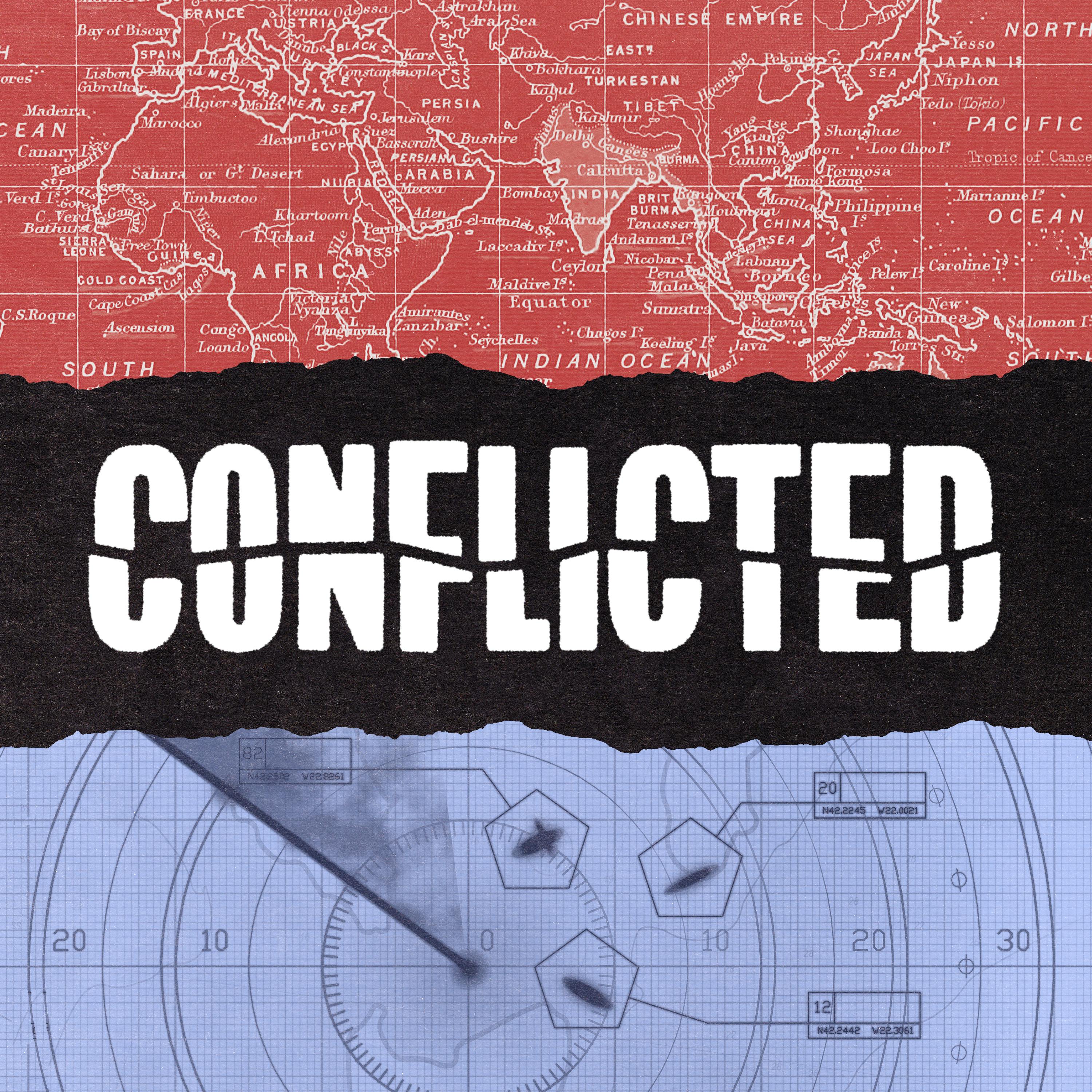
CONFLICTED
Message Heard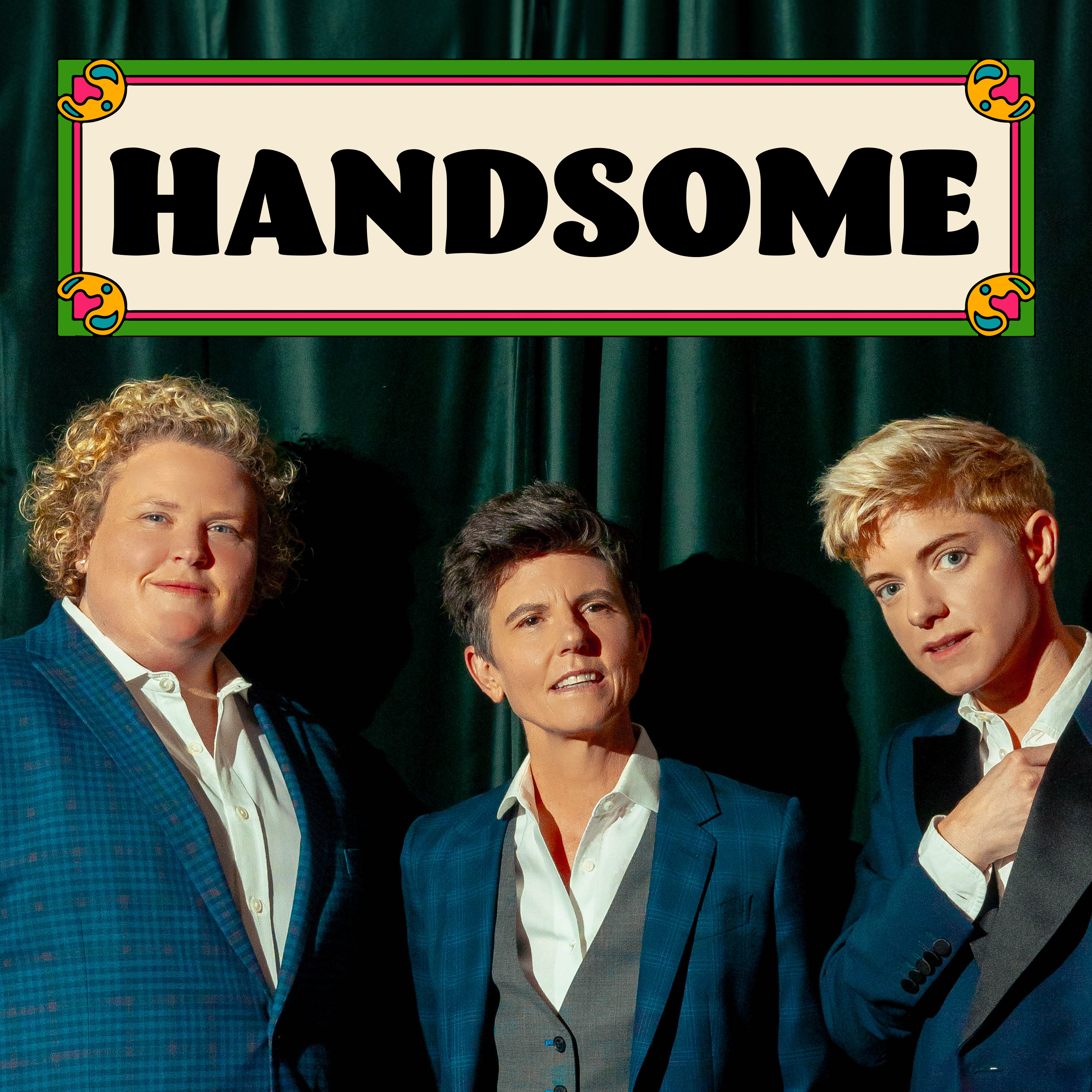
Handsome
Headgum
The Daily Stoic
Daily Stoic | Backyard Ventures
If Books Could Kill
Michael Hobbes & Peter Shamshiri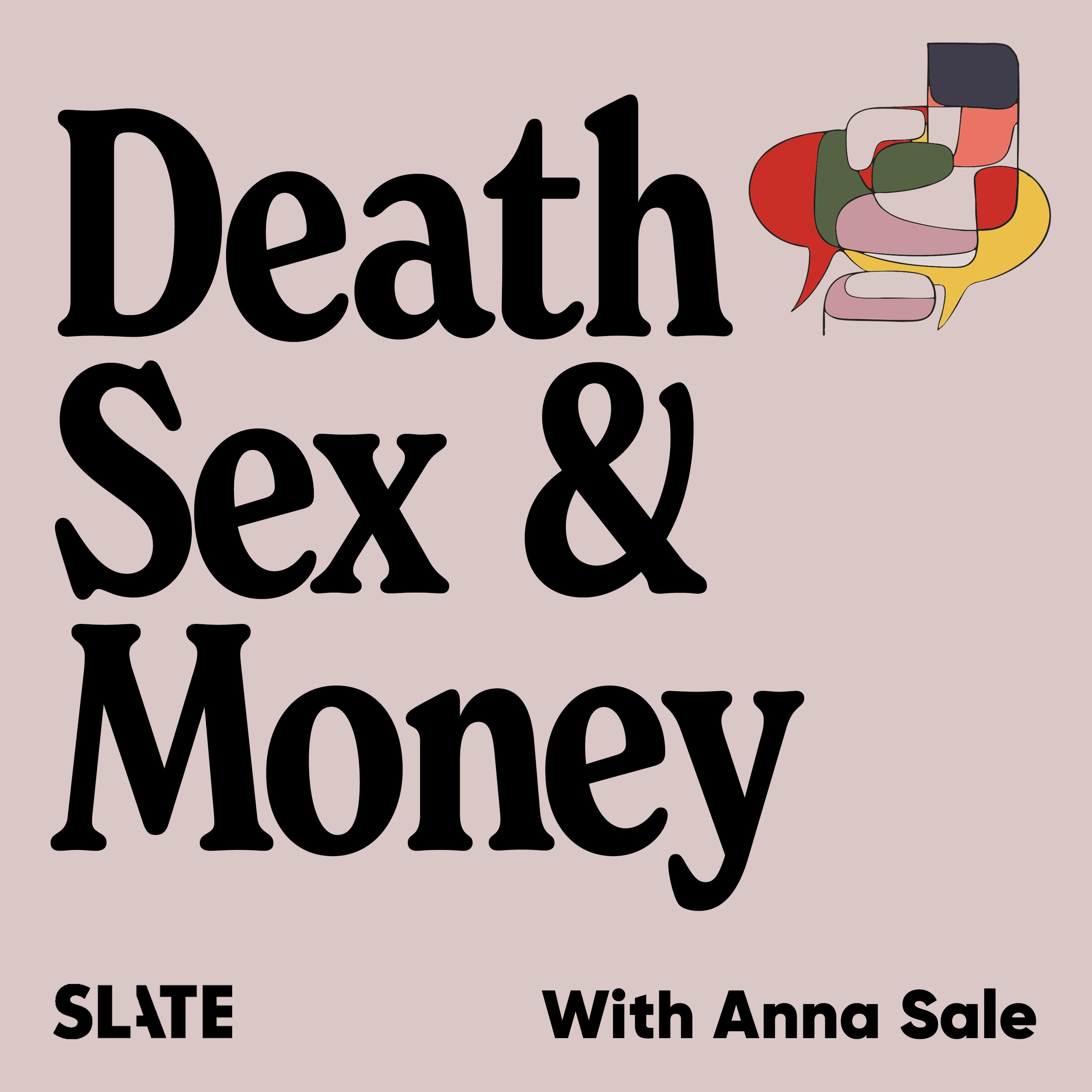
Death, Sex & Money
Slate Podcasts
Wiser Than Me with Julia Louis-Dreyfus
Lemonada Media
Maintenance Phase
Aubrey Gordon & Michael Hobbes
Serial
Serial Productions & The New York Times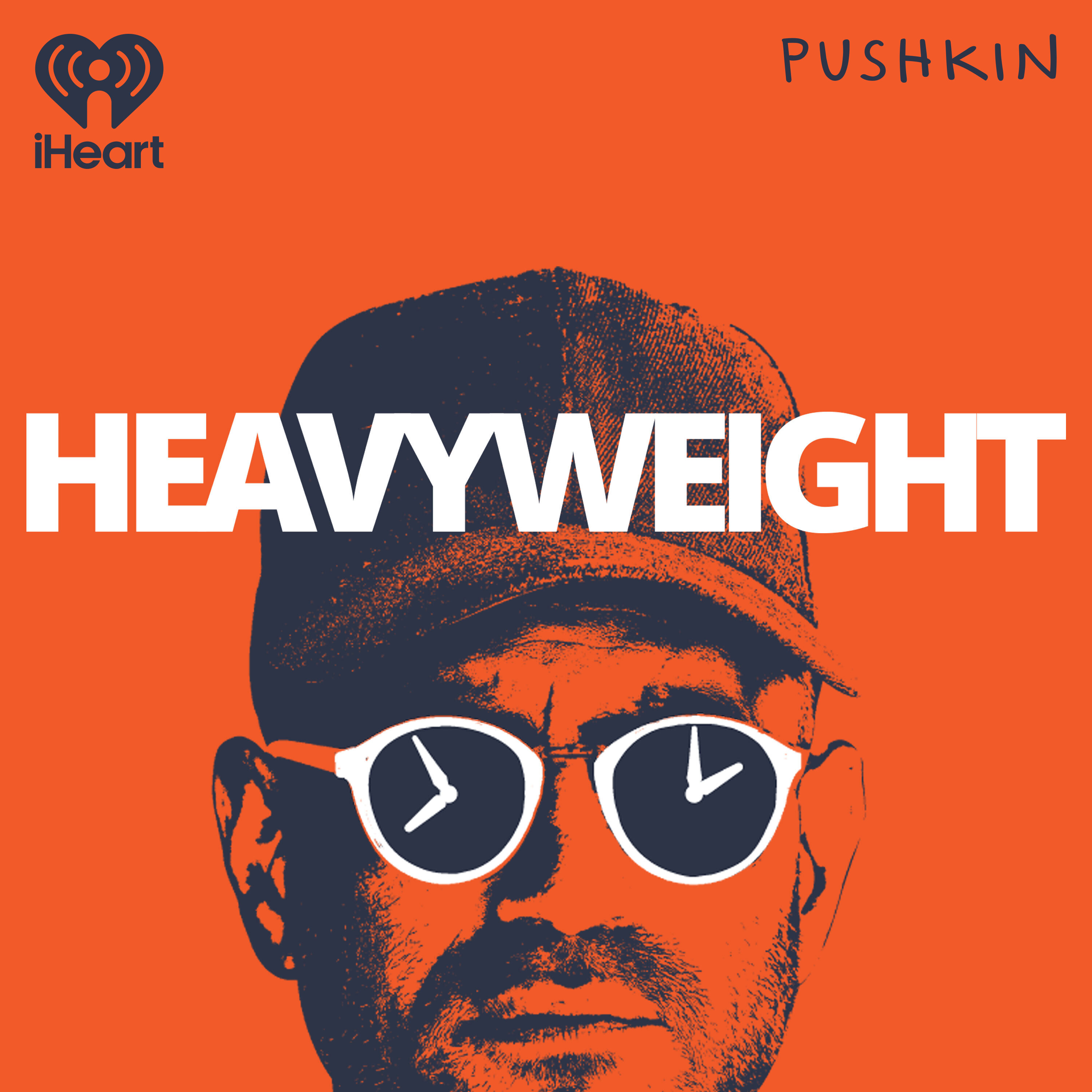
Heavyweight
Pushkin Industries
Stoic Coffee Break
Erick Cloward
Radiolab
WNYC Studios
Throughline
NPR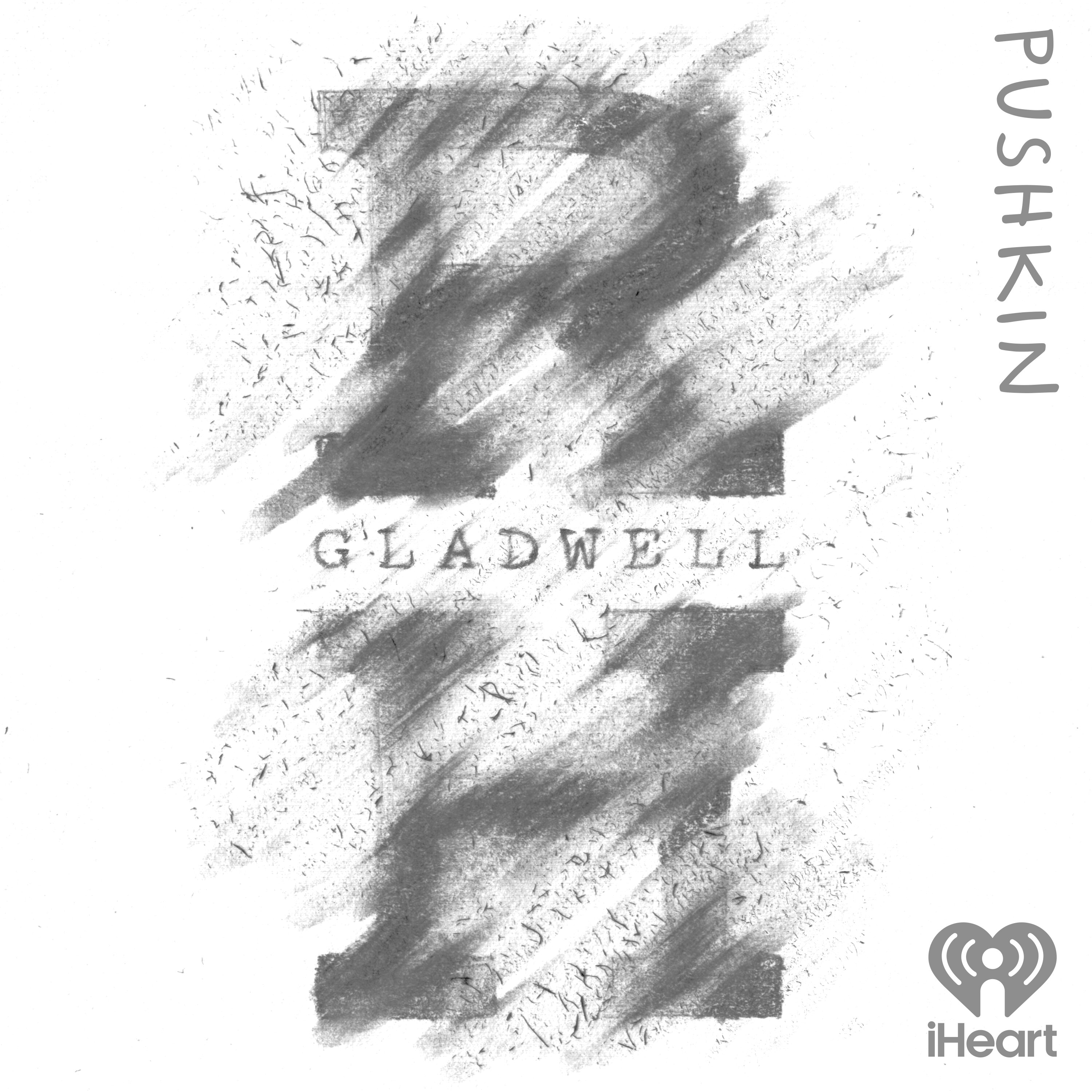
Revisionist History
Pushkin Industries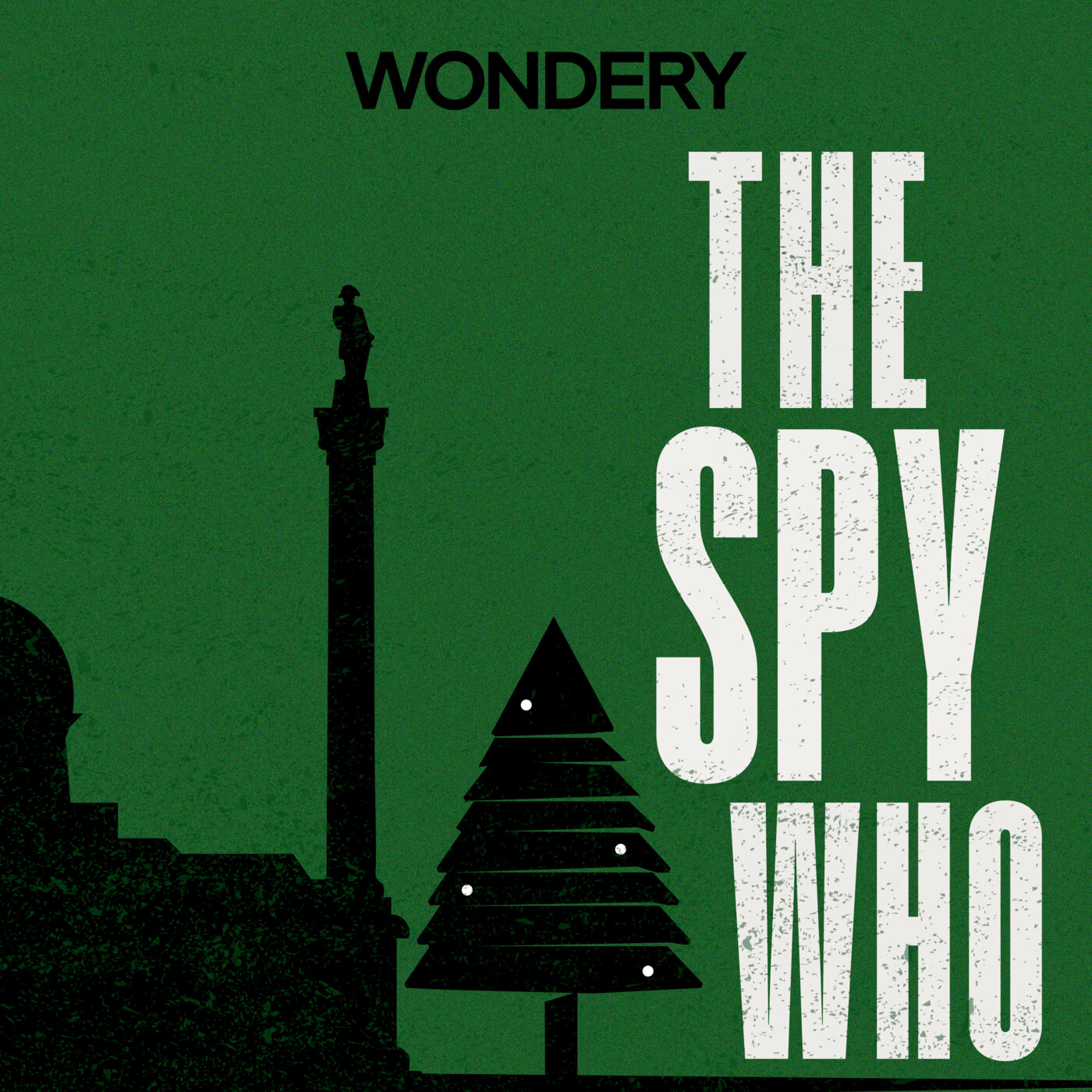
The Spy Who
Wondery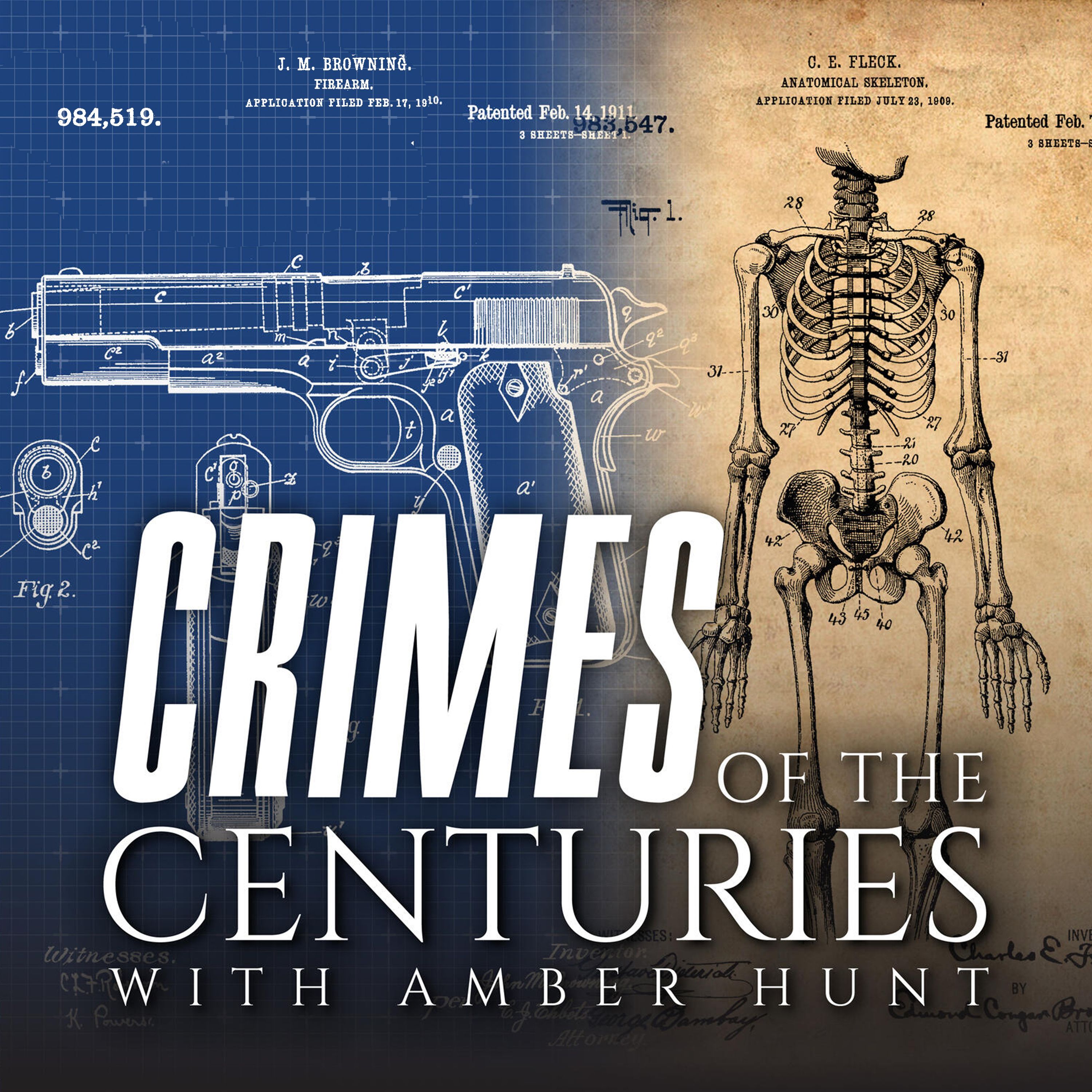
Crimes of the Centuries
Amber Hunt and Audioboom
Freakonomics Radio
Freakonomics Radio + Stitcher
DISGRACELAND
Double Elvis Productions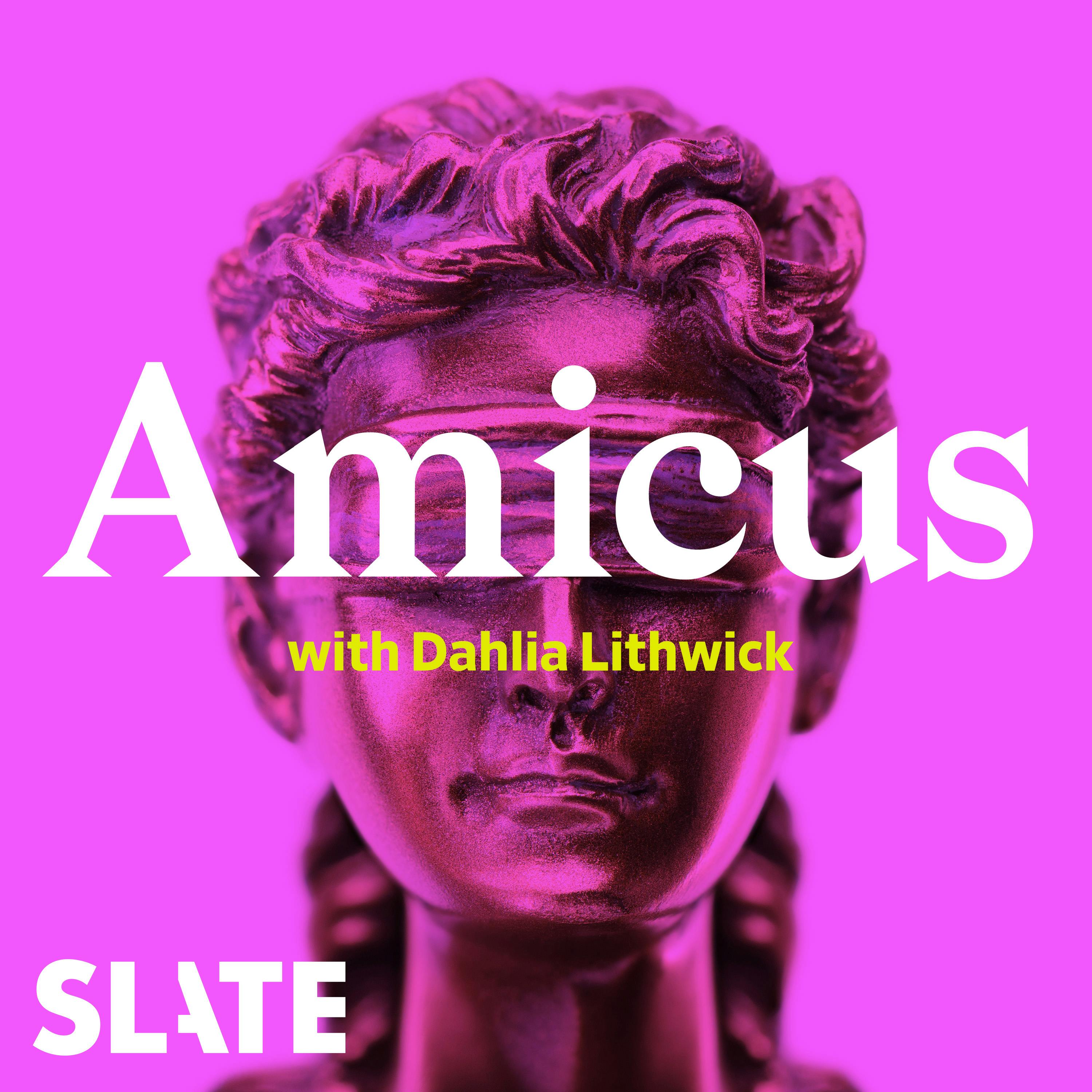
Amicus With Dahlia Lithwick | Law, justice, and the courts
Slate Podcasts
Decoder Ring
Slate Podcasts
Hidden Brain
Hidden Brain, Shankar Vedantam
Embedded
NPR
Where Should We Begin? with Esther Perel
Esther Perel Global Media

